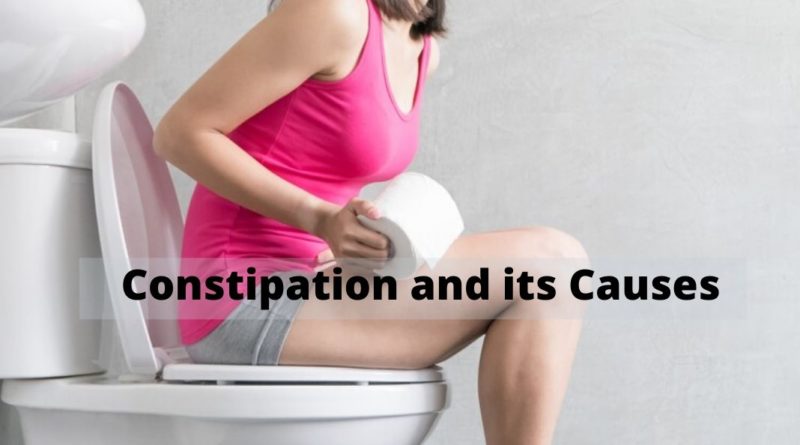Constipation and its Causes
What is and what are the causes of constipation; feeding for constipation; lifestyle and natural remedies for constipation.
Constipation is a disorder that affects millions of Spaniards and can affect adults, children, the elderly and pregnant women. Overall, according to estimates, it appears that women and the adult population over 65 are the most affected. Perhaps you too suffer from typical symptoms and wonder about constipation: how is it treated? In this case, after excluding with your doctor that it is not about other diseases, the first step is to change the lifestyle.
Movement, the regular rhythm of meals and baths, hydration and a diet rich in fibers are essential steps to get rid of this disorder. Pharmacological support may be necessary if your case is chronic constipation, but don’t forget that nature can provide a range of effective aids such as herbal medicine and/or Bach flowers.
Table of Contents
What is it and what are the causes of constipation?
According to current definitions, constipation, also called constipation, is a bowel emptying disorder characterized by a frequency of evacuation of fewer than three times a week, with decreased stool mass, difficulty expelling hard and dehydrated stools, accompanied by pain and feeling of not having evacuated them completely. When this condition recurs, there is talk of chronic constipation, but there are also episodes of acute or occasional constipation that are found in particular situations such as surgery, taking certain medications, or a trip that alters personal biorhythms.
Among the main causes of chronic idiopathic constipation (that is when there are no diseases of different origins), the most common are: sedentary lifestyle; a poorly calibrated diet; irritable bowel syndrome; pregnancy due to colon displacement to make room for the uterus and subsequent hormonal changes. Conditions like diabetes, hypothyroidism, or other diseases can also cause constipation.
However, if the main symptoms are accompanied by other symptoms such as blood loss in the stool, asthenia or abdominal pain not accompanied by the presence of stimuli, the causes of constipation may be due to more serious diseases such as colorectal cancer, endometriosis, hernias, etc…. In the case of these warning signs, it is advisable to contact your family doctor, who in order to make a correct diagnosis and exclude other diseases, may prescribe more exhaustive investigations such as colonoscopy; opaque schism; anorectal transit study; defecography; blood tests that exclude metabolic or inflammatory diseases, etc …
Diet for constipation
To avoid the causes of constipation and to carry out an adequate treatment, a dietary intervention is essential, here are some suggestions:
Increase fiber consumption, as they are capable of increasing fecal mass and stimulating peristalsis. Then consume a serving of raw or cooked vegetables at each of the main meals. Preference should be given to zucchini, aubergines, green beans, spinach, and broadleaved vegetables; on the contrary, it is necessary to pay attention to the consumption of cauliflowers, broccoli, and artichokes, which can increase the problems of meteorism.
Eat fruits at snacks, especially kiwis, figs, plums, pears, apricots, cherries; When possible and the fruits are organic, eat them with the skin, but you can also choose cooked fruit that is capable of affecting the frequency of bowel movements;
Legumes are also ideal for increasing the fibers of your diet; introduce legumes such as peas, lentils, chickpeas, beans, and beans at least twice a week.
Hydration to combat constipation is essential, so drink at least two liters of water a day, start the morning by drinking two glasses on an empty stomach because the liquids are absorbed by the stool and increase the volume. You can also drink liquids in the form of herbal teas (not astringent tea) or broth;
Foods to avoid in case of constipation include alcohol, coffee, fried foods, animal fats, and fermented cheeses, all enemies of those who fight this problem.
Lifestyle
Lifestyle and some healthy habits can change your constipation problem and the world of herbal medicine can help you even more:
regular physical activity, according to studies, favors intestinal motility; In particular, running and walking are recommended to stimulate the muscles of the intestine. However, physical exercise is useful only if practiced not occasionally, the ideal frequency is a brisk walk of at least half an hour every day, but also yoga, dance or a sport with sessions of at least three times a week are optimal to achieve the desired benefits;
Always maintain the same routine in the bathroom; always prefer the same time to go to the bathroom, preferably after one of the main meals to stimulate intestinal function;
Eat at regular hours and chew slowly to avoid introducing air during ingestion, which would lead to greater meteorism;
Do not postpone if you have the urge to go to the bathroom because it is a bad habit that over time can inhibit the stimulus to empty your rectum;
Do not force yourself to go to the bathroom because you risk compromising the normal physiological mechanisms involving contraction of the intestinal muscles and concomitant relaxation of the anal sphincter. In addition to compromising these mechanisms and presenting a risk if you suffer from problems with the cardiovascular system, there is a risk of hemorrhoids and bleeding. So take as much time as you need, take a position that favors compression of the abdomen between the thighs (for example, placing an elevation in front of the toilet) and provide entertainment such as a good book or newspaper to promote relaxation;
Natural remedies for constipation
Phytotherapeutic remedies for constipation can help resolve acute constipation problems, in this case, the user should be occasional so as not to incur irritation of the intestinal lining. The latter include: rhubarb, which in addition to its laxative characteristics also helps in cases of poor digestion and liver failure, as it also has digestive and tonic properties; the bony bark that is able to restore tone to the muscle fibers of the intestine through a “sweet” action, allowing it to be used for long periods without being irritating to the intestinal mucosa;
Among the plants against constipation are those that constitute mechanical laxatives that lubricate the intestinal walls to facilitate evacuation and that in contact with water produce a gel to soften the fecal mass. These include mallow leaves and flowers that, in addition to having an anti-inflammatory function for the intestine, have a sweet laxative action thanks to mucilages (active substances capable of creating a kind of gel). For this reason, mallow is also suitable for constipation in children, the elderly and pregnant women; flaxseed infusion is an effective and innocuous natural laxative thanks to the mucilage contained in the seeds that increase in volume, favoring the expulsion of feces and maintaining an emollient and protective effect on the intestinal mucosa;




